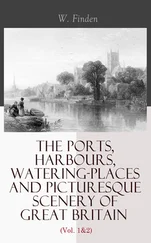The second week of Whicher's investigation had yielded no new evidence at all - only a new idea: a thought about a nightdress.
CHAPTER ELEVEN
WHAT GAMES GOES ON
27-30 July
At eleven o'clock on the morning of Friday, 27 July the magistrates convened at the Temperance Hall for the examination of Constance Kent. Their task was to judge whether she should be sent for trial at a higher court. Twenty-four members of the press were waiting outside. Before the court rose, Whicher spoke in private to Samuel Kent. He told him that he believed him innocent, and was prepared to make a statement to that effect. Kent declined the offer - 'for prudential reasons', said his solicitor. The nuances of the relationships between father, daughter and detective were delicate; it might harm Samuel to seem in league with Constance's accuser.
There were other signs that Whicher was less than sure of succeeding in his case against Constance. That morning he paid a band of workmen to dismantle the water closet in which Saville had been found, and to scour the cesspool and drain. This was a last-ditch attempt to find the missing nightgown or the knife. The search was unsuccessful. Whicher gave the men 6s.6d., with an extra shilling for refreshments.
Constance arrived in Road at 11.30, escorted by the governor of Devizes gaol. After a brief delay to the start of the proceedings, during which she waited in the house of Charles Stokes, the saddler, she approached the hall. 'She was dressed as before,' reported The Times, 'in deep mourning, but wore a thick veil, which screened her countenance from the eager gaze of the majority of the spectators assembled outside.' The veil was understood as a sign of modesty and decorum. For a woman to hide herself, and her family's privacies, was not sinister but seemly. Yet it was also tantalising. In a novel of 1860, A Skeleton in Every House, Waters wrote of 'the dark secrets that palpitate and writhe beneath the flimsy veils'.
'On being brought into the hall,' continued The Times, 'Miss Constance Kent fell into her father's arms, and kissed him. She then took the seat which had been provided for her, and burst into tears.' The Somerset and Wilts Journal had her quivering into the courtroom: she entered 'walking with a faltering step, and going up to her father, gave him a trembling kiss'.
In contrast to her frailty, the crowd was strong and keen. The hall was 'instantly filled', said The Times. The spectators 'came in with a tremendous rush, occupying every available inch', said the Journal. Only half would fit; the rest thronged outside, awaiting news. Three rows of reporters stretched across the room. Their full, verbatim transcripts of the hearing were to be published all over England the next day.
The magistrates sat on their platform, alongside Detectives Whicher and Williamson, Captain Meredith, Superintendent Wolfe and Henry Clark, the magistrates' clerk. It would fall to Clark to examine Constance on behalf of the Bench.
At a table in front of the platform sat Samuel Kent and his solicitor, William Dunn of Frome, and in front of them the barrister hired to defend Constance: Peter Edlin, of Clifton, Bristol. He had a 'glaring eye, distinct utterance, and somewhat cadaverous expression of countenance', reported the Somerset and Wilts Journal.
Constance bent her head forward, and did not move or speak. She sat through the day frozen and bowed. 'The events of the past month had evidently told severely upon her,' said the Somerset and Wilts Journal, 'for in her thin pale face we should scarcely have recognised the robust, deeply complexioned girl of five weeks ago. The same singularly forbidding cast of countenance, however, characterised her features.'
Samuel rested his chin on his hand and stared ahead. He seemed 'much depressed', according to the Bath Express, 'his countenance bearing unmistakeable indications of deep grief . . . Next to the prisoner, himself and Mr Whicher divided the attention of the public.' Not one of these three had a formal part to play in the day's proceedings - they were there to watch and be watched. The law specifically excluded Constance, as the accused, from testifying.
Elizabeth Gough was called first, and the magistrates resumed their examination of the previous Friday. 'She appeared considerably emaciated,' according to the Somerset and Wilts Journal. This paper's reporter seemed to see the female suspects in the case diminishing before his eyes, as if slowly consumed by the public's hunger for the sight of them.
Clark asked Gough about the blanket. 'I did not miss the blanket from the little boy's cot until it was brought in with the body,' she said.
Edlin asked the nursemaid about the relationship between his client and her young half-brother. 'I have never heard Constance say anything unkind to Saville,' Gough said. 'I have never seen her conduct herself otherwise than kindly towards him.' She was unable to confirm that Saville had given Constance a bead ring on the day he died, or that Constance had given Saville a picture.
William Nutt was recalled. Edlin asked him about his 'prediction' that Saville would be found dead, and Nutt repeated the evidence he had given at the inquest: he had only meant that he feared the worst.
Constance's schoolfriend Emma Moody was then examined.
'Have you ever heard the prisoner make use of any expression of ill-feeling towards the deceased?' asked Henry Clark.
'She disliked it through jealousy,' said Emma.
At this Edlin jumped in: 'That is not an answer to the question. What did the prisoner say?'
Emma repeated some of what she had told Whicher: that Constance admitted to teasing and pinching Saville and Eveline, that she was not looking forward to going home for the holidays, that she felt her parents favoured the younger children.
Clark asked if she remembered Constance saying anything else about Saville. Though Emma had told Whicher that she had once reproved Constance for claiming that she hated her half-brother, the girl made no reference to it now. 'I do not remember any other conversation with her about the deceased child. I have only heard her slightly refer to him.'
'Have you ever heard her say anything more with regard to her deceased brother?' urged Clark, but Edlin intervened.
'I submit that this is wrong; the examination is most unusual and improper . . . It seems to me to be a most unusual and unprecedented line of examination.'
'I have only endeavoured to elicit facts,' Clark protested.
'I give you credit for a sincere desire to do your duty,' replied Edlin, 'but in your desire to discharge it, you have unintentionally very far exceeded it.'
Now Henry Ludlow interrupted to defend his clerk. 'Perhaps you will say in what way. That is rather a strong expression.'
'I most courteously express it,' said Edlin. 'I think Mr Clark has exceeded his duty; he seems to have misconceived it. He has a school-fellow of the prisoner's before him, and instead of confining himself to questions, and being satisfied with the answers, he has pursued the examination rather after the method of a cross-examination, and not in the manner examinations in chief are generally conducted, still less in a case of this important nature.' Applause broke out in the hall, which Ludlow angrily hushed.
'If another demonstration of that kind is made,' he warned, 'the magistrates will order the court to be cleared.' He turned to Edlin. 'Perhaps you will make some specific objection, Mr Edlin, instead of advancing those of a general nature.'
Clark added: 'If we get a witness that does not understand what you ask, I do not know how you are to get at the evidence, unless you ask the question again.'
Читать дальше












